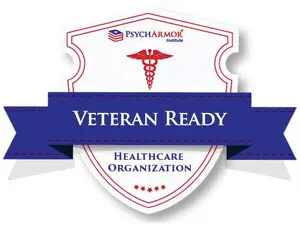Make It Happen: Goal-Setting for 2022
 At some point, you might have rolled your eyes hearing someone talk about their “five year plan” because honestly, who does this? Actually, a lot of people, especially if they want to have more control in the direction of their lives.
At some point, you might have rolled your eyes hearing someone talk about their “five year plan” because honestly, who does this? Actually, a lot of people, especially if they want to have more control in the direction of their lives.
Planning & Goal-Setting Give Us Hope
People who enjoy spontaneity might initially think of planning and goal-setting as too stodgy for what they want to experience. But even if you want to dash away on an impromptu weekend road trip, you still have to arrange for someone to walk the dog, pick up the mail, and put gas in the car. Okay, so while these housekeeping tasks aren’t exactly goals, they demonstrate on a more basic level why a little planning helps you go a long way.
According to Leon Ho, the founder and CEO of LifeHack, “goal setting is linked to higher achievement.” He believes that planning goals and following through allows us to “become more resourceful, work better in a team, and shape the future.”
The best goals, according to Ho, align with your personal values and beliefs. “Values-based goals guide us towards what is important versus unimportant,” Ho says. “Goals that are based on our values will provide endless motivation, because we believe in them and want to see them play out.” Motivation is really key here: it’s easier to follow your plan and work through your goals if they’re naturally part of your deeper intentions and desires.
Frankly, one of the best examples of this motivation and goal-setting is in the recovery community. Whether you practice a 12-Step group such as Alcoholics Anonymous, a cognitive behavioral group such as SMART Recovery, or something else, there are incremental points of achievement that help propel you closer to desired goals.
So if you’re 27 days away from achieving your one-year sobriety chip in AA but struggling with some rough aspects of life, your desire to celebrate a full year of health might be the catalyst for calling your sponsor or therapist and working through the challenges so you can hold that chip with pride.
Tips for Successful Goal-Setting
Whenever you choose to start establishing new goals—for the new year, on your birthday, your sobriety date, whatever—there are some essential points for turning your dreams into reality.
Write Them Down
Ho says research shows that writing down goals makes them more effective: “In 2015, psychologist Gail Matthews showed that people who wrote down their goals were 33 percent more successful in achieving them, versus those who just kept ideas in their heads.” Why? Because you’ve taken a rambling idea and put it into action.
Additionally, the more detailed you outline your goals, the better. Mark Murphy of Forbes explains that external storage and encoding create a better path to achievement:
External storage: ”You’re storing the information contained in your goal in a location (e.g. a piece of paper) that is very easy to access and review at any time. You could post that paper in your office, on your refrigerator, etc…,” Murphy writes. “It doesn’t take a neuroscientist to know you will remember something much better if you’re staring at a visual cue (aka reminder) every single day.”
Encoding: “This is the biological process by which the things we perceive travel to our brain’s hippocampus where they’re analyzed. From there, decisions are made about what gets stored in our long-term memory and, in turn, what gets discarded,” he adds. “Writing improves that encoding process. In other words, when you write it down it has a much greater chance of being remembered.”
Prioritize One Goal at a Time
This can be tough, especially when you’re excited for certain changes to begin. But if you pick a particular goal topic that’s in sync with your values, it’s easier. So for example, if you’re eager to get your finances in order, detail all the steps that might be required, and then zero in on just one, such as paying off all debt. Then, identify who and what will help you do that in a specific timeframe.
Yes, Establish a Goal Timeline
One of the psychological reasons why the AA sobriety chip method helps people is that each milestone is a measurable, incremental achievement with a tangible reward. So just when you think you can’t make it to 60 days, you have the 30-day sobriety chip to remind you to keep going. Some goals, like financial accomplishments, might take a bit longer, but if you set up incremental benchmarks along the way to the finish line, it’s much easier to stay on track.
Reward Yourself
Yes indeed, reward yourself for each goal milestone you reach! It could be tangible—a little something you set by your written goals so you can see the achievements stack up—or just a celebratory text to a friend who knows your journey. Take time to pause and acknowledge that because of dedication to this goal, good things are happening by your design.
Learn more about goal setting from Mindtools.
At Seabrook, We Believe in You
We’ve designed our goals to help individuals and families achieve wellness with our specific values always top of mind. If one of your new goals is to be the best version of yourself and learn to manage alcohol use disorder and substance use disorder with clarity, hope, and purpose, we’d love to help.




